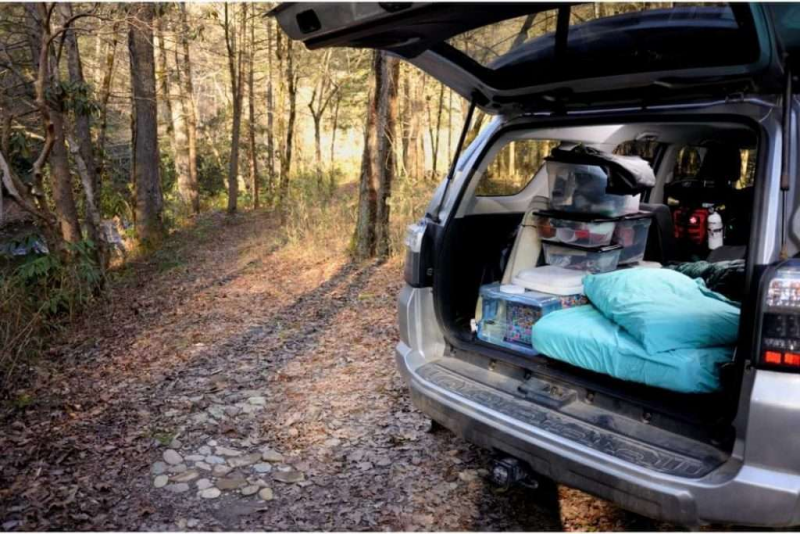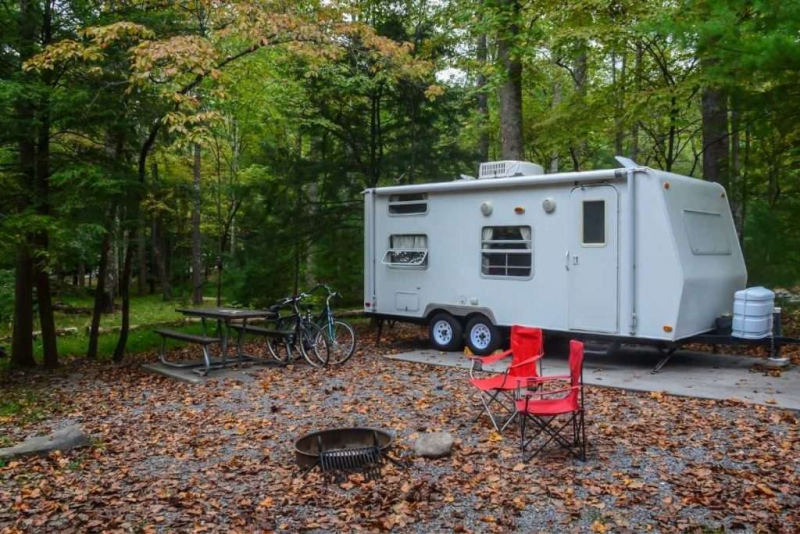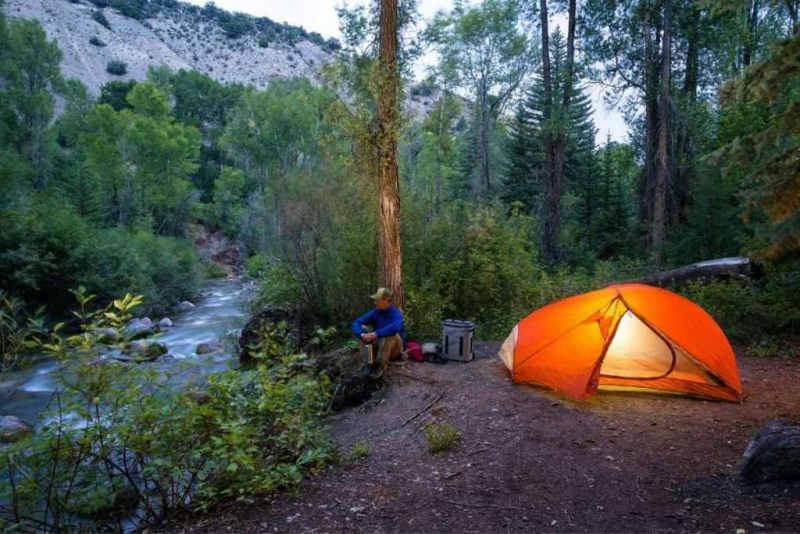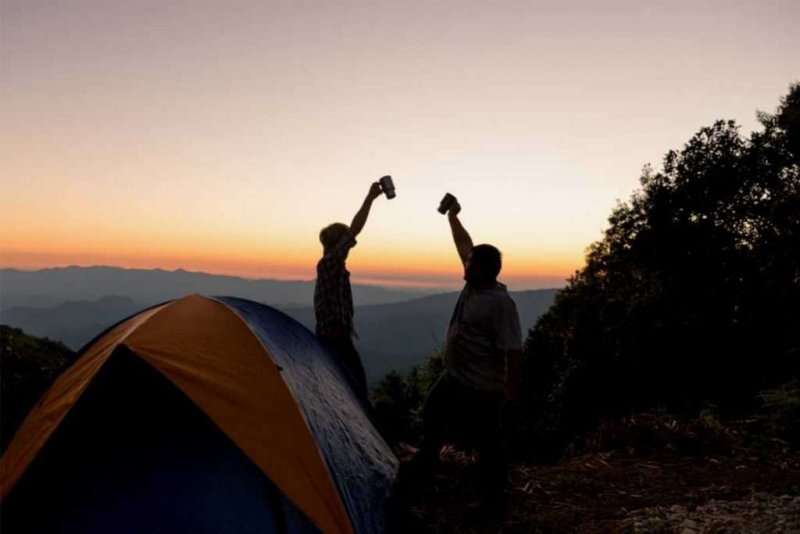There are two primary camping styles: frontcountry camping and backcountry camping. Both offer unique experiences, and in this article, we'll delve into each to help you decide which suits you best.
Frontcountry Camping: Frontcountry camping (commonly referred to as car camping) takes place in developed areas near roads, towns, and cities. Typically, it means camping at a campground where you can easily drive up to your campsite.
Frontcountry camping is immensely popular due to its convenience, making it ideal for families and newcomers to camping. These campgrounds are scattered across the country, ranging from state and national parks to private campgrounds.
Frontcountry campsites usually feature well-maintained facilities with amenities like running water, flush toilets, electricity, and often even cell phone service, with free WiFi available in communal areas. These sites are commonly found along paved or dirt campground roads, closely spaced with clear ground for parking and tent setup.
Expect amenities like established fire pits, picnic tables, and sometimes bear-proof food storage lockers. Many frontcountry campgrounds also cater to RVs and trailers, offering electrical and water hookups for added comfort.
Backcountry Camping: Backcountry camping ventures into undeveloped, remote areas accessible solely by foot, boat, or other unconventional means like planes, helicopters, or snowmobiles in the winter. You'll need to hike, boat, paddle, or fly to reach these campsites as they're not accessible by road.
Backcountry camping is the epitome of adventure and offers a more immersive, rugged experience. You'll be far removed from modern conveniences, deep in the wilderness, disconnected from the hustle and bustle of everyday life.
Backcountry campsites vary depending on your location. In state, provincial, or national parks, campsites are usually marked with signs, featuring tent spots, fire pits, and sometimes privies or outhouses. Some well-used sites might have wood provided by park staff and bushcraft features like log benches and tables. However, on Crown land (Canada) or public land (U.S.), you don't need reservations, but the campsites are often less maintained and can vary in quality.
Frontcountry vs. Backcountry Camping: The Main Differences Frontcountry camping offers easy access via car or RV and typically takes place in regional or private campgrounds. Backcountry camping is more primitive, only accessible by foot, boat, or unconventional means, and provides a remote, adventurous experience.
Benefits of Frontcountry Camping:
Drawbacks of Frontcountry Camping:

Benefits of Backcountry Camping:
Drawbacks of Backcountry Camping:
Choosing Your Camping Style: Consider frontcountry camping if:
Consider backcountry camping if:
Both frontcountry and backcountry camping offer unique experiences, so choose the one that aligns with your preferences and level of outdoor readiness. Remember to practice Leave No Trace principles, camp safely, and most importantly, have a fantastic time! Happy camping!
